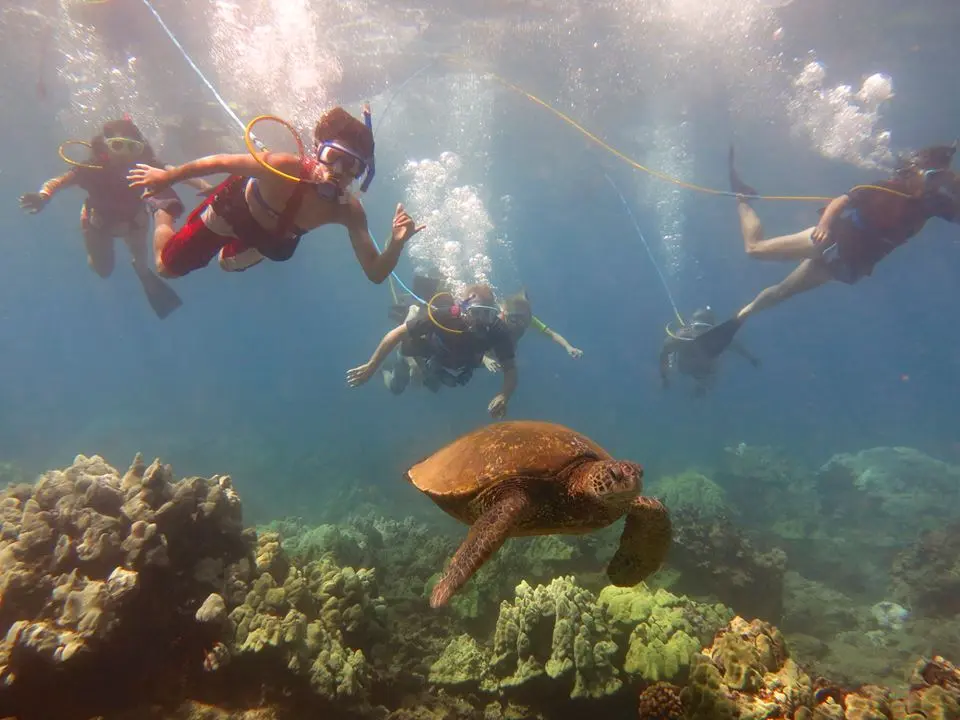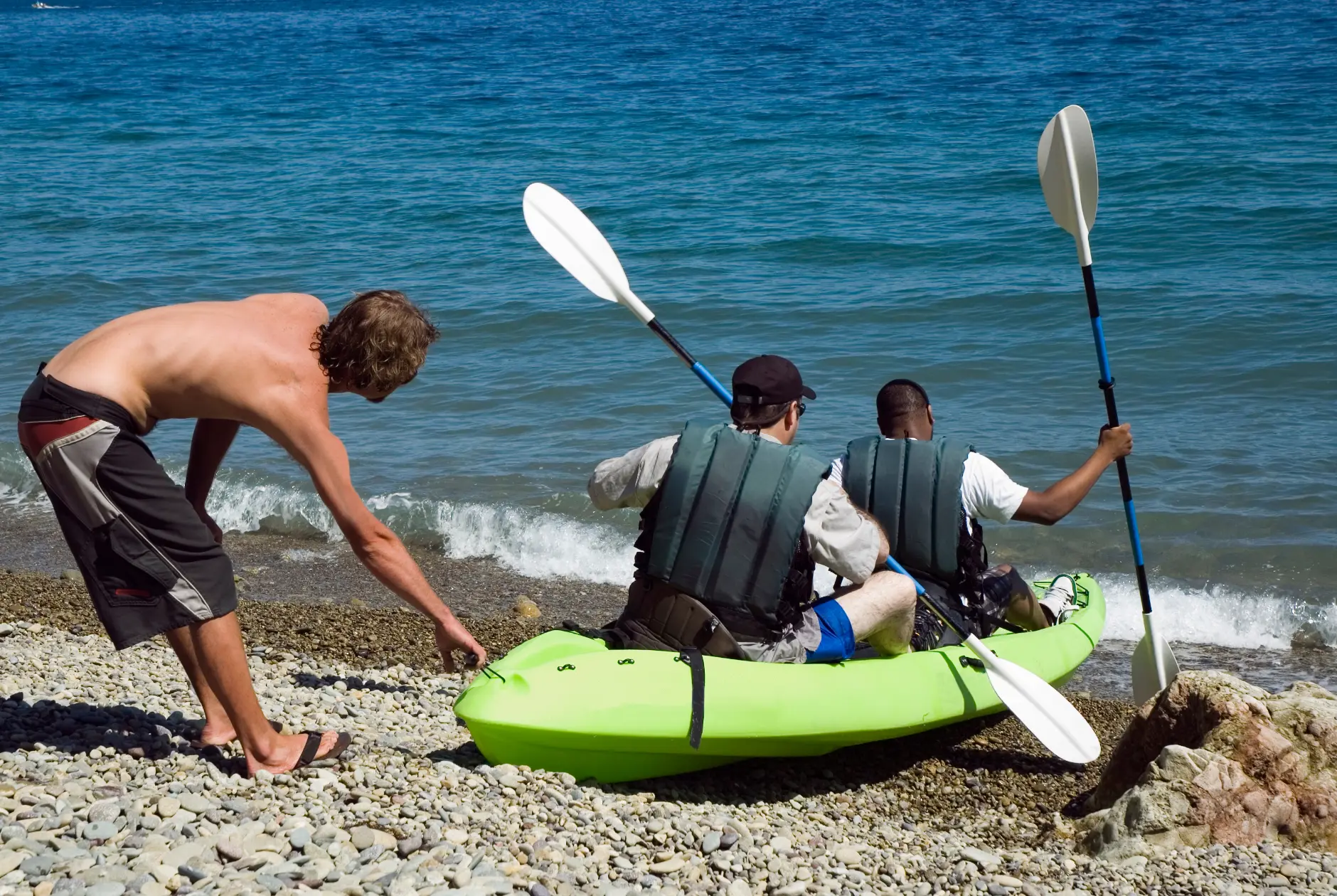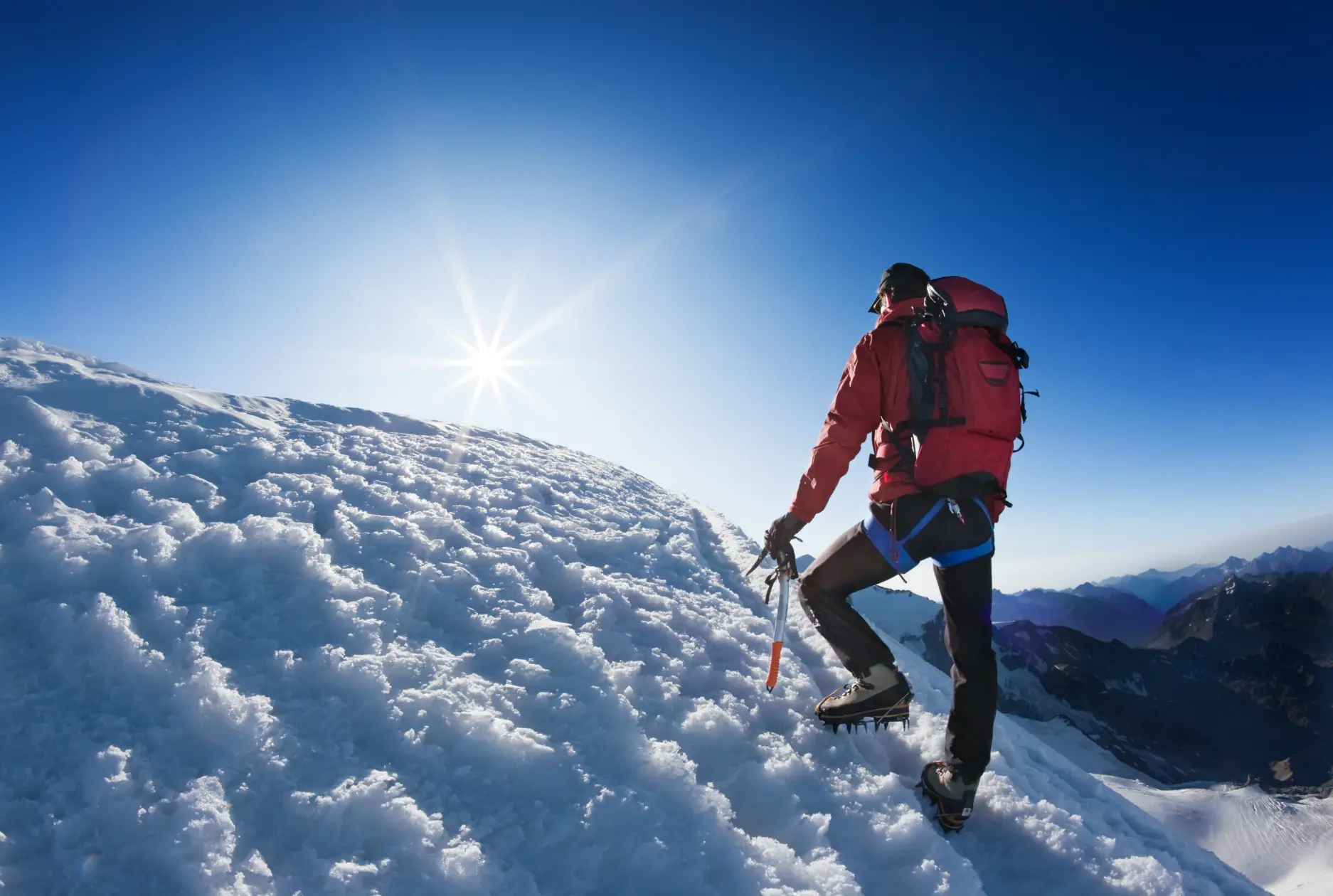Why Can’t You Freediving After Scuba Diving. Best Advise 2024!
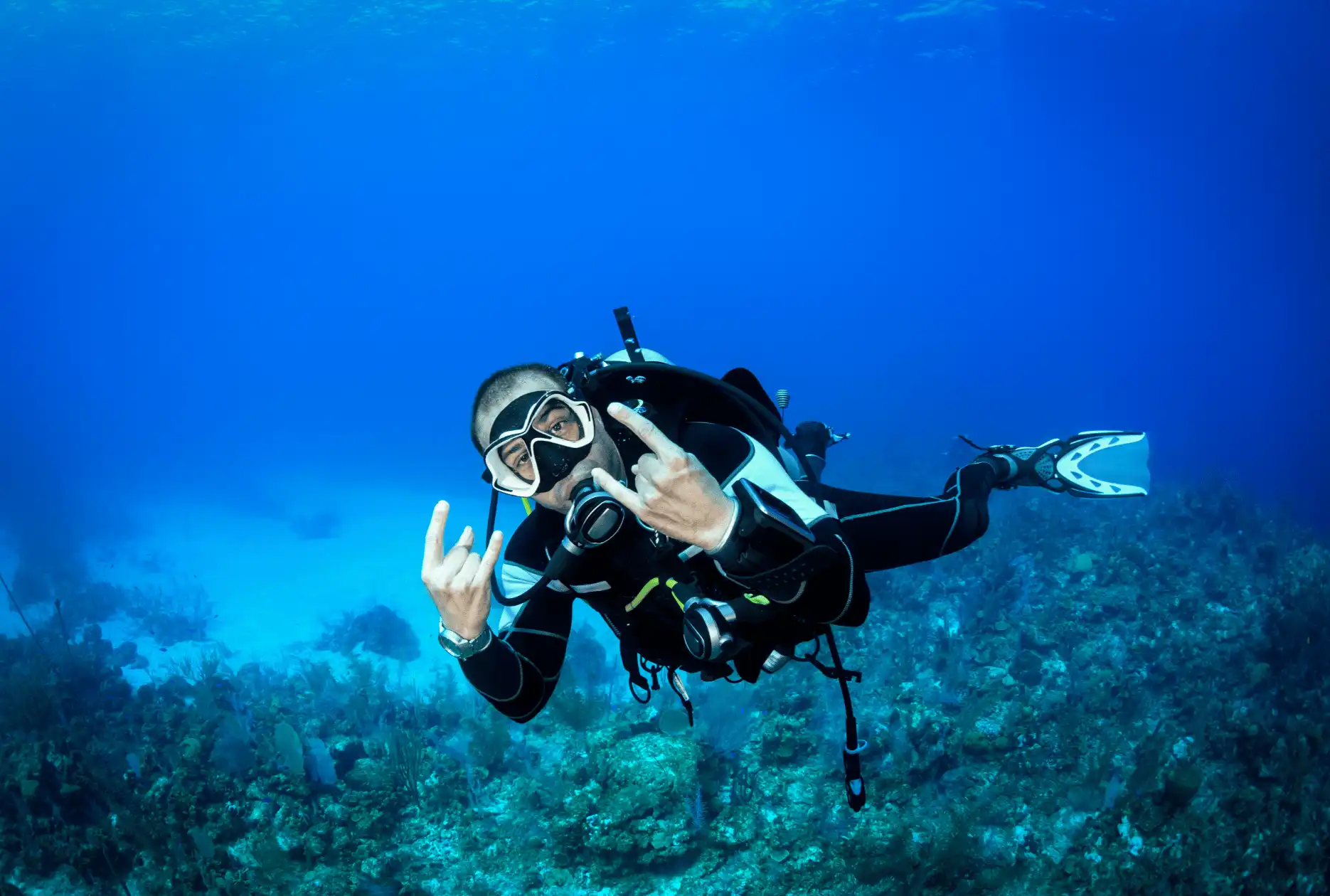
You cannot freedive after scuba diving due to the risk of decompression sickness. Ascending from depth too quickly can release nitrogen bubbles into your bloodstream.
Freediving after scuba diving poses significant health risks for divers. The abrupt change from the high-pressure environment of scuba diving.
To the relatively low pressure of freediving can lead to serious decompression sickness, commonly known as “the bends. ” This condition arises when nitrogen absorbed under pressure forms bubbles in the blood as pressure decreases.
Since scuba gear allows divers to stay deeper for longer, the body accumulates more nitrogen. If a diver then freedives without allowing sufficient time for this gas to dissipate, the risk of these bubbles forming increases. Safety protocol dictates a substantial surface interval between scuba and freediving activities to ensure nitrogen levels normalize. This precaution helps protect divers from the painful and potentially fatal consequences of decompression sickness.
Table of Contents
The Risks Of Freediving Post-scuba
Diving into the deep blue after scuba diving sounds thrilling. But it’s risky. Your body needs time to get rid of excess nitrogen from scuba diving. Without this time, freediving can lead to serious health issues. Let’s dive into why this is dangerous.
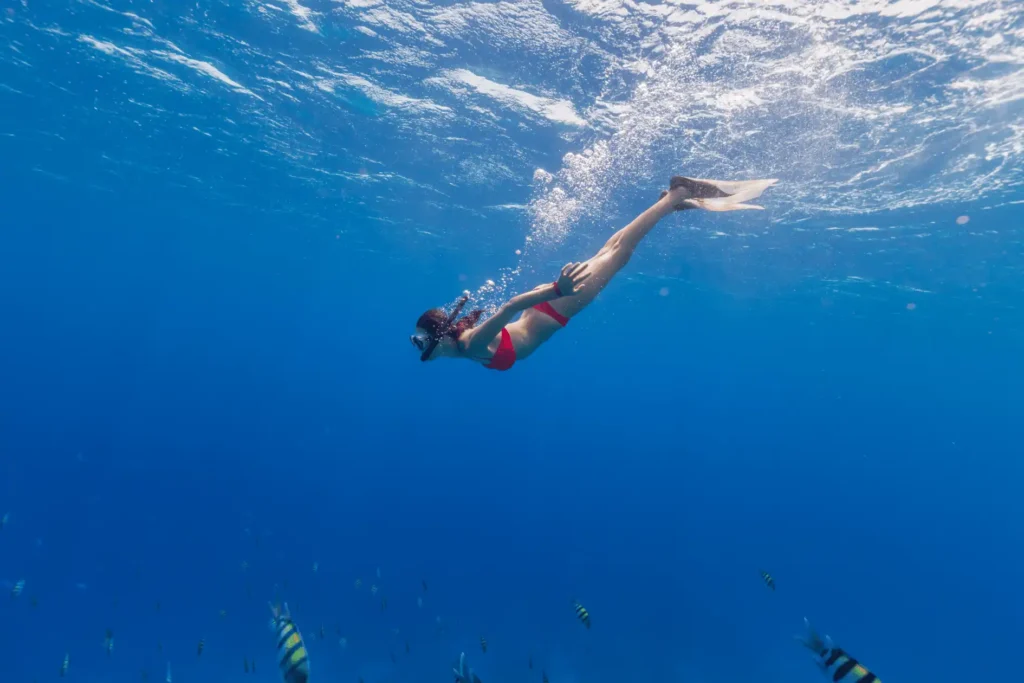
Nitrogen Absorption In Tissues
When you scuba dive, your body absorbs nitrogen. This happens due to the high pressure underwater. During a dive, you breathe compressed air which has more nitrogen than you would breathe on land. Your tissues absorb this extra gas.
Once you surface, pressure drops. But your tissues still contain nitrogen. If you freedive too soon, this can be harmful. Your body may not have released all the nitrogen yet.
- Nitrogen needs time to leave your body naturally.
- The surface interval between dives helps reduce nitrogen levels.
- Feeding too soon increases risk.
Decompression Sickness Dangers
Decompression sickness, or the bends, is a common risk. It happens if you come up to the surface too quickly after diving.
Nitrogen bubbles can form in your blood and tissues if you ascend too fast. This can cause pain, damage, and even be deadly.
| Symptoms of Decompression Sickness | Why They’re Bad |
|---|---|
| Joint pain | It can be severe and immobilizing |
| Dizziness | Makes swimming and orientation hard |
| Nausea | Can lead to vomiting underwater |
Freediving after scuba diving adds to the risk. This could trigger decompression sickness. Wait at least 24 hours before freediving to stay safe. This way, your body can process the nitrogen.
How Scuba Diving Affects Body Gases
Diving under the sea feels like entering a different world. Your body experiences changes as it adapts to the deep-water environment. One major change is how body gases behave. Let’s dive into the science behind this phenomenon.
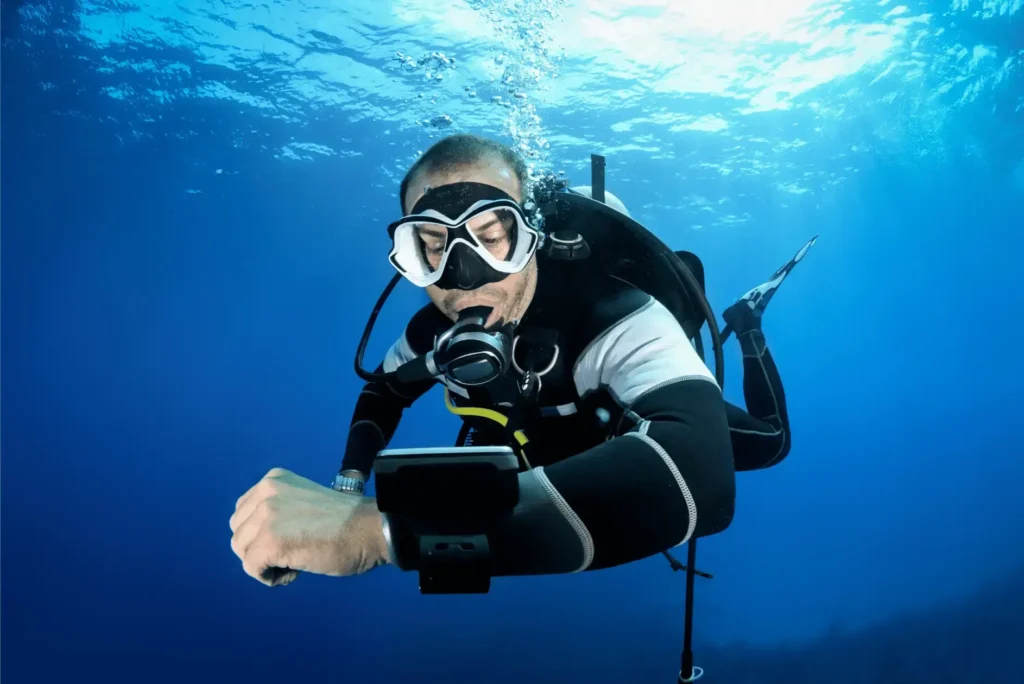
Increased Gas Solubility Under Pressure
Going deeper underwater means more pressure. This pressure affects gases in your body. Your tissues absorb more gas because of this pressure. It’s like squeezing a sponge in water; the deeper you go, the more it soaks up. The primary gas of concern here is nitrogen, which is in the air you breathe from your scuba tank.
- Increased pressure underwater pushes gases into body tissues.
- More nitrogen absorbs when diving for longer and deeper.
Gas Expansion During Ascent
As you come up from the deep, pressure decreases. Remember the soaked sponge? When you release it to the surface, it releases water. Your body does the same with gases. Gases expand and leave your tissues.
| Depth (Feet) | Pressure (Atmospheres) | Gas Expansion |
|---|---|---|
| 30 | 2 | Gas doubles in volume |
| 60 | 3 | Gas triples in volume |
| 90 | 4 | Gas quadruples in volume |
A slow ascent is key to let gases escape safely. If you ascend too fast, gases can form bubbles in your blood, known as decompression sickness. So after scuba diving, it’s important to give your body time to release these gases before freediving.
Decompression: A Delicate Process
Think of your body like a soda bottle. Diving deep underwater increases pressure, like shaking the bottle. If you surface too fast, it’s like popping the bottle open – the fizz erupts uncontrollably. But, if you’ve been scuba diving, your body has absorbed extra gas under pressure, similar to the extreme fizz inside a vigorously shaken soda.
To prevent ‘the bends’ – painfull and dangerous bubbles in your body – a careful and slow ascent is crucial. It allows the excess gases to escape, much like fizz leaving slowly when you ease open a soda. This off-gassing can take hours, and therefore, heading back underwater for freediving before this process is complete could trigger serious harm.
The Science Of Off-gassing
When you scuba dive, the pressurized environment causes nitrogen to dissolve in your blood. This gas must be released slowly. On ascending, pressure decreases, and dissolved gas starts to form bubbles. This is off-gassing. Freediving too soon can disrupt this delicate balance, causing bubbles to form in tissues or blood, a potentially life-threatening condition called decompression sickness, or DCS.
Required Surface Interval Times
The length of your surface interval, or break between dives, depends on many factors:
- Depth of previous dive
- Duration underwater
- Your breathing mixture
- Individual health condition
Dive tables or computers provide safe intervals, often several hours to over a day, before diving again or flying. Skipping these could lead to serious health issues, including DCS. Always consult these guides and respect the required waiting times to dive or freedive safely.
Freediving Dynamics
Exploring the underwater world captures the imagination of divers everywhere. Particularly intriguing are the distinct differences between scuba diving and freediving. Each has its own appeal and its own set of rules. A key consideration for enthusiasts is understanding why engaging in freediving directly after scuba diving can be a risky move. Let’s delve into the ‘Freediving Dynamics’ to unearth the science behind this rule.
Breath-hold And Pressure Changes
Freediving is an art of diving on a single breath. Unlike scuba diving, you don’t carry air underwater. Your lungs shrink and expand due to water pressure changes. As you dive deeper, pressure increases, and your lungs compress. Returning to the surface, pressure decreases, and your lungs expand again. These changes must be gradual and controlled.
- Ears and sinuses must equalize pressure to avoid discomfort.
- Exercising breath-hold techniques is critical for safety.
- Ascend slowly to allow the body to adjust.
Minimal Nitrogen Absorption
In scuba diving, you breathe compressed air which leads to more nitrogen entering your bloodstream. Under high pressure, your body absorbs more gas. If you ascend too fast, this can cause decompression sickness.
Freediving after scuba poses risks because residual nitrogen remains in your body. Without proper decompression, freediving can trigger a rapid release of nitrogen bubbles in your tissues and bloodstream. This is harmful and must be avoided.
- The body absorbs nitrogen during scuba dives.
- Nitrogen must be released slowly over time.
- Freediving too soon can accelerate nitrogen release, causing dangers.
Combining Freediving And Scuba: A Dangerous Cocktail
Imagine a cocktail mixed with two potent substances. Combining freediving and scuba diving is similar but far riskier. Each sport requires different pressure adjustments. Your body needs time to adapt after scuba before you can safely freedive. Disregarding this can lead to serious physical harm.
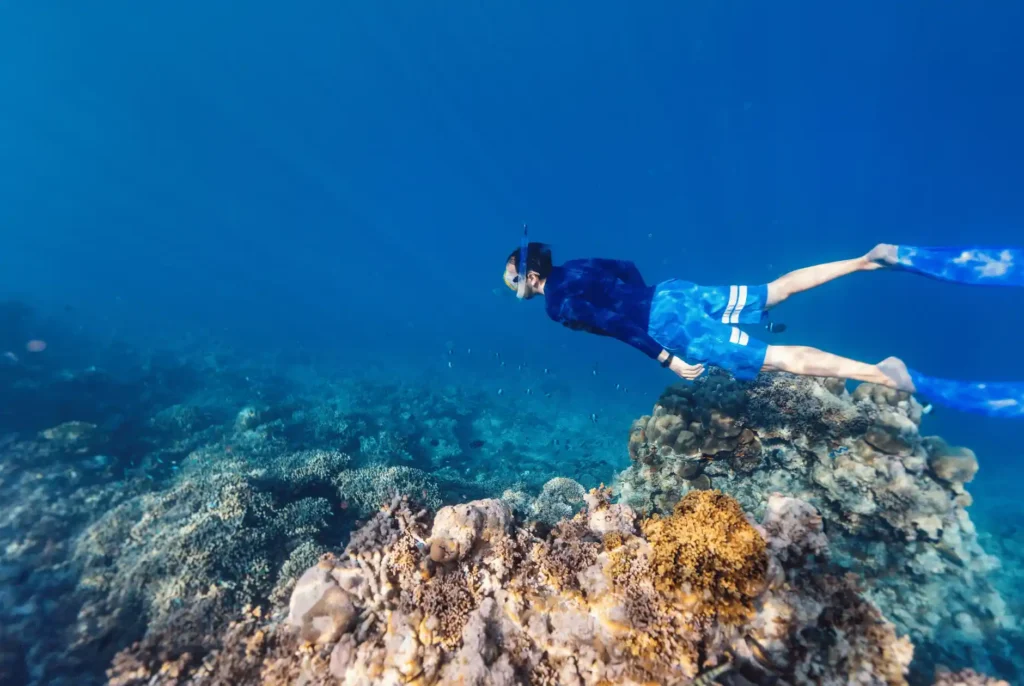
Real Dangers Of Ignoring Advice
Diving experts warn against switching from scuba to freediving without a significant rest period. This is crucial for avoiding decompression sickness (DCS), also known as ‘the bends’. Here’s why:
- Scuba tanks deliver air at high pressure. This air dissolves into your bloodstream.
- Your body absorbs nitrogen from this air, which needs time to release slowly.
- Surface intervals allow this release. Skipping them can trap these gases in your blood.
- Freeing too quickly after scuba can cause these gases to form bubbles in your blood. This is dangerous.
Accidents And Case Studies
Real incidents highlight the risks of mixing freediving and scuba without ample rest.
| Year | Incident | Result |
|---|---|---|
| 2015 | Diver freediving after scuba | Decompression sickness |
| 2018 | Scuba dive followed by freedive | Bends and hospitalization |
| 2020 | Back-to-back scuba and freedive | Long-term injury |
Each case involved individuals skipping recommended surface intervals. These actions led to DCS and required urgent medical responses. Some cases resulted in lasting physical damage. Such accidents underscore the necessity of patience and respect for diving safety rules.
Best Practices For Dive Enthusiasts
Best Practices for Dive Enthusiasts ensure safety under the sea. They blend fun with caution. Understanding why you can’t freedive after scuba diving is crucial.
Planning Dive Sessions
Proper dive planning prevents accidents. Divers know when to dive and how deep. It sets limits for safety.
Dive tables guide your underwater journey. They tell when to dive and when to rest. Following these tables is a must.
- Check weather conditions before diving.
- Know your limits and don’t push them.
- Plan your surface interval to avoid decompression sickness.
Importance Of Diver Education
Diver education is vital. It helps understand the risks. Courses prepare you for emergencies.
Knowledge reduces risks. Educated divers make smart choices. They know their equipment and how to use it.
- Take a course on dive theory.
- Learn about decompression and gas management.
- Practice emergency scenarios.
Conclusion
Understanding the risks associated with freediving after scuba diving is crucial for divers’ safety. Respect the recommended wait times to prevent nitrogen-related complications. Embracing this practice will ensure that your underwater adventures are both enjoyable and safe. Remember, the ocean’s beauty is best experienced when we dive responsibly.


